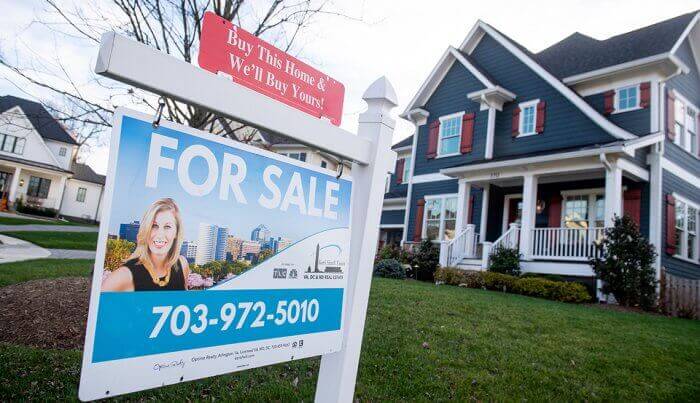
Blame it on the pandemic, supply-demand imbalance, inflation or a combination of all three, but in any case, housing costs are soaring, whether older Americans are renting, aging in place or seeking to purchase a new home.
Just how bad is it? According to real estate platform Zumper, rent prices surged 12 percent year-over-year in 2021 and continue to increase this year. The median price for a one-bedroom apartment rose 1.5 percent in February when compared with January. To put it in perspective, for all of 2020 the median rent for a one-bedroom apartment rose 0.6 percent. In 2019 it was a 0.3 percent increase.
“That is a lot for one month, especially if you take into account in February in a lot of parts of the country it’s cold and nobody wants to move,” says Jeff Andrews, senior market analyst at Zumper. “Typically rents pull back in the winter and that didn’t happen at all.”
Prices for homes are soaring, too. According to the S&P CoreLogic Case-Shiller U.S. National Home Price Index, home prices gained 18.8 percent the 12 months ended in December. According to the National Association of Realtors (NAR), in January the inventory of available homes stood at 860,000, which Gay Cororaton, a senior economist at NAR, said is the equivalent of 1.6 months of supply. The desirable level is five to six months of supply.
There are reasons to be optimistic later in the year and beyond. The Federal Reserve plans to raise interest rates multiple times this year. That will drive mortgage rates up, reducing demand for homes, and ultimately slowing price growth or even driving prices down. “We should expect slower home appreciation in 2022 and over the next two years,” says Cororaton. “Rising rates will help control demand for homes and will make prices more affordable. That will spill over into the rental market.”
But if you are among the countless older adults who can’t wait for housing prices and rents to cool down, there are some things you can do to defray the costs today.
1. Negotiate a longer lease
If you’re finding it difficult to make your rent or are worried your landlord is going to increase it or worse, evict you, try to negotiate a longer lease, says Andrews. This tactic may work better if you are renting from an individual rather than a property management company or a large real estate conglomerate that owns lots of properties and has to answer to shareholders. “I live in Brooklyn in a brownstone and my landlord lives below me. She’s renting to pay her mortgage. It’s been five years and she has not raised my rent yet,” says Andrews. “My landlord is trying to pay her mortgage and my rent does that. She doesn’t have a hard-core incentive to try to raise my rent.”
2. Downsize your digs
Downsizing to a smaller apartment or moving to a less coveted part of town can help you save money if you’re having difficulty paying your rent. Identifying ways to curb your living expenses and taking in a roommate can also help defray your housing costs. A recent AARP survey of older adults found 69 percent would be open to sharing their home with a relative who was not a spouse and 54 percent would let a friend live with them as they get older.

AARP Membership — $12 for your first year when you sign up for Automatic Renewal Join today and enjoy all AARP has to offer — including money management resources, online calculators and access to a variety of financial and insurance products to help you plan for retirement or build a healthy savings for your family. JOIN TODAY
3. Consider refinancing your mortgage
Aging in place was a trend before the pandemic, but since then it’s become the preference for countless Americans. That same AARP survey found three-quarters of adults over the age of 50 who own a home want to remain in that house for as long as possible. Doing so has gotten pricier as property values soar. Not only is maintenance more, but property taxes, homeowners insurance and other living expenses are skyrocketing amid record inflation. One way to counter that is to refinance your mortgage if you’re paying more than current interest rates.
“For the many homeowners who bought or refinanced in the past two years, it’s unlikely they could benefit much from refinancing today, but homeowners should keep in mind that a refinance can make financial sense at a rate only 0.5 percentage points below your current one,” says Jeff Tucker, a senior economist at online real estate firm Zillow.
4. Don’t overlook private mortgage insurance
If you have private mortgage insurance, now is the time to see if there’s enough equity in your home to get that removed. According to Andrea Woroch, a budgeting expert, you can save about $200 a month on your mortgage if you aren’t paying PMI. She also said it behooves you to shop around for your homeowner’s insurance at least yearly to see if you can save on your premiums.
5. Shop around
For people who want to purchase a new home, choosing a less sought-after neighborhood and opting for a smaller home can make it more affordable. Shopping around for your mortgage will also save you money over the life of the loan.
“For those deciding between renting and buying, the possible impact of inflation should be weighed against the rising costs of buying a home,” says Tucker. “If a household is able to afford a home purchase, the fixed cost of a long-term mortgage serves as a hedge against rental price inflation.”
Comments are closed